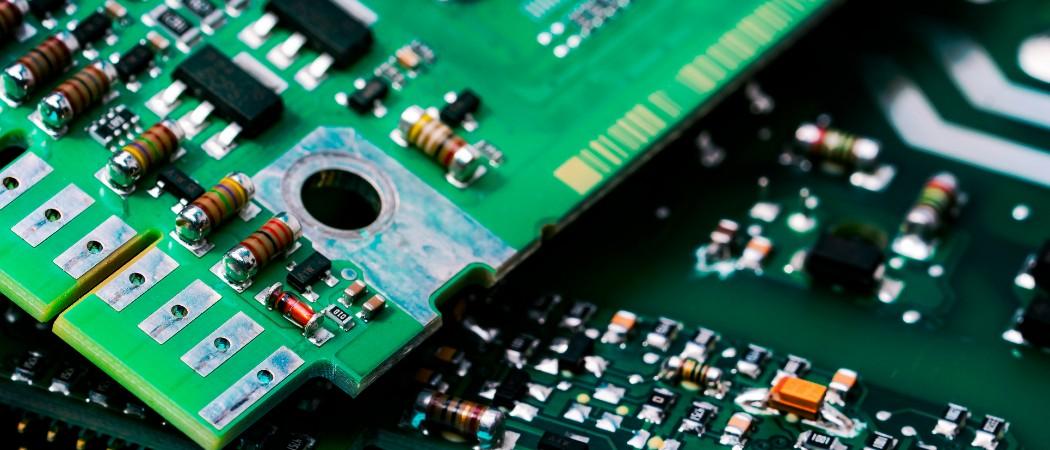Diplomatic sources say the objective of a raising a €3.3B budget for ‘Chips for Europe’ remains, but the money must be found elsewhere

EU ministers have rubberstamped an agreement that will not allow €400 million in unspent Horizon Europe money to contribute to the Chips for Europe initiative at a Council meeting today.
The move follows last week's unanimous agreement on the issue by EU ambassadors at the Permanent Representatives Committee (COREPER), the Council's main preparatory body.
Chips for Europe is a €3.3 billion package of research in the Chips Act, a sweeping plan to boost research, development and manufacturing of semiconductors in Europe.
The act was proposed by the European Commission in February to address the semiconductor shortage in Europe. They are at the heart of all electronic devices, and Europe remains heavily dependent on imports from Asia, making the bloc vulnerable to geopolitical turmoil.
Of the €3.3 billion budget, the Commission intended half to come from Horizon Europe and half from Digital Europe. Of the total, the Commission plans to distribute €2.875 billion through a newly-establsihed Chips Joint Undertaking.
According to the Commission proposal, the Digital Europe portion of the budget should have been funded with €400 million transferred from unspent Horizon Europe money. Now, member states have pushed back against that proposal because they do not agree to route unspent research money back into the EU budget.
Over the past two years, the European Parliament and research stakeholders have criticised the Commission for coming up with new policies and initiatives such as the Chips Act, that piggyback on the budget of EU’s main research and innovation programme, Horizon Europe.
At the beginning of November, the Czech presidency proposed to cut €400 million from decommitted Horizon Europe funds and at the COREPER meeting, EU ambassadors agreed. One EU diplomat told Science|Business that member states will "not go beyond the commitment” that was agreed in 2020 during the negotiations for the EU multiannual budget.
Ongoing budget tussle
Despite cutting the Horizon Europe contribution, member states want to keep the budget for the chips initiative at €3.3 billion. To do this, the diplomat said, ministers will ask the Commission, Parliament and member states to look for alternative funding sources in their trialogue negotiations.
Parliament and member states frequently disagree over how EU money for research is spent. The two sides recently reached agreement on the 2023 budget for research after thorny negotiations in which MEPs failed to win the case for putting €650 million in unspent Horizon Europe back into the research and innovation programme.
MEPs have also been critical of the Commission’s plan for the Chips Joint Undertaking. They complained the budget is nowhere near what China and the US spend on semiconductor R&D, and also called for the undertaking to be more focused on developing smaller scale, more powerful, next generation semiconductor technologies.
“I and most of my colleagues in the Parliament, especially those that work on Chips Act and Horizon, fully support and have expressly asked for the decommitted Horizon funds to be made available for funding the Chips Joint Undertaking,” Latvian MEP Ivars Ijabs told Science|Business.
Horizon Europe rapporteur Christian Ehler agrees with the move not to take €400 million from Horizon Europe, but finds it odd that member states can agree to spend €3.3 billion on the chips initiative and then refuse to commit fresh funding.
“[Member states] approve a budget but cancel part of the financing of that budget because of their obsessive opposition against using decommitments,” said Ehler. “They were ridiculing [former UK prime minister] Boris Johnson for years for wanting to have his cake and eat it too. Now this is exactly what the member states do as well.”
Ijabs said he tabled an amendment to the joint undertaking legislation calling for at least €500 million to come from unspent Horizon Europe funds. “I hope that the Council at some point will take this position into account,” he said.
MEPs want member states to agree to revise the EU multiannual budget to provide the financial means the bloc needs to achieve its policy objectives. The Commission is also poised to come up with a proposal for updating the EU budget, which can no longer cope with inflation and changing priorities after Russia’s invasion of Ukraine.
Chips consortia
Meanwhile, ministers are also expected to agree on the European Chips Infrastructure Consortia, which is meant to ease the rollout of EU funding for semiconductors. EU diplomats say this has been another heavily debated topic during COREPER negotiations.
Some member states did not see the need to create a new mechanism to disburse the fund, and were worried that it would favour bigger member states, which can lead projects more easily.
The Chips Act is a top priority on the EU’s political agenda. The bloc wants to increase its global share of semiconductors production from 10% to 20% by 2030.





 A unique international forum for public research organisations and companies to connect their external engagement with strategic interests around their R&D system.
A unique international forum for public research organisations and companies to connect their external engagement with strategic interests around their R&D system.